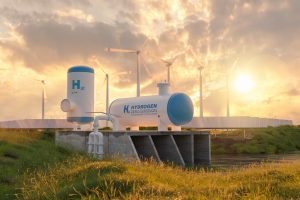The latest episode of the Engineers Collective is out now: listen in on Spotify, Apple Podcasts, your usual platform or the player below.
This month’s episode of focuses on the role that hydrogen could play in the global effort to transition to a zero-carbon world.
International management consultancy Arthur D. Little recently put out a report entitled Hydrogen: The electroshock to the energy transition and in this episode NCE acting news editor Rob Hakimian is joined by three experts from the company to discuss just how this might happen.
They discuss where hydrogen is already being used, the barriers to greater adoption, the UK’s recently published hydrogen strategy, National Highways’ commitment to using hydrogen plant on its landmark Lower Thames Crossing road tunnel and much more.
Read Arthur D Little’s full report here.
Prior to the interview portion, Rob is joined by NCE editor Gavin Pearson and reporter Tom Johnson to discuss some of the stories from the civil engineering world that have caught their attention in the early portion of 2024. They discuss Thames Water’s controversial Teddington Direct River Abstraction, the government’s pledge to work with the tidal range sector and Balfour Beatty’s ill-fated attempts to carry out net zero construction at the Royal Botanic Garden Edinburgh.
Like what you've read? To receive New Civil Engineer's daily and weekly newsletters click here.
 New Civil Engineer Civil engineering and construction news and jobs from New Civil Engineer
New Civil Engineer Civil engineering and construction news and jobs from New Civil Engineer




How desperate the oil & gas industry must be to gaslight us with Hydrogen!
The losses in manufacturing & using Hydrogen are substantial; Hydrogen is inherently dangerous to use & transport plus has many disadvantageous properties that are easily forgotten.
Electrification has already won on transportation & heating, so how long can this white elephant drag on?
Hydrogen is the future for energy storage.
Green energy from solar and wind is not a guaranteed source of constant energy and is totally reliant on the weather conditions
Tidal stream will provide a constant source of energy and the new floating Tidal Stream units look very promising .
If floating Tidal Stream units were installed in every fast flowing tidal estuary around the UK, this country could easily become energy self sufficient particularly if each group of units was connected to onshore power stations able to produce hydrogen by electrolysis of water .
The hydrogen could be transported and distributed locally, thereby avoiding the electrical energy having to be connected to and distributed by the National Grid which is one of current problems with tidal power.